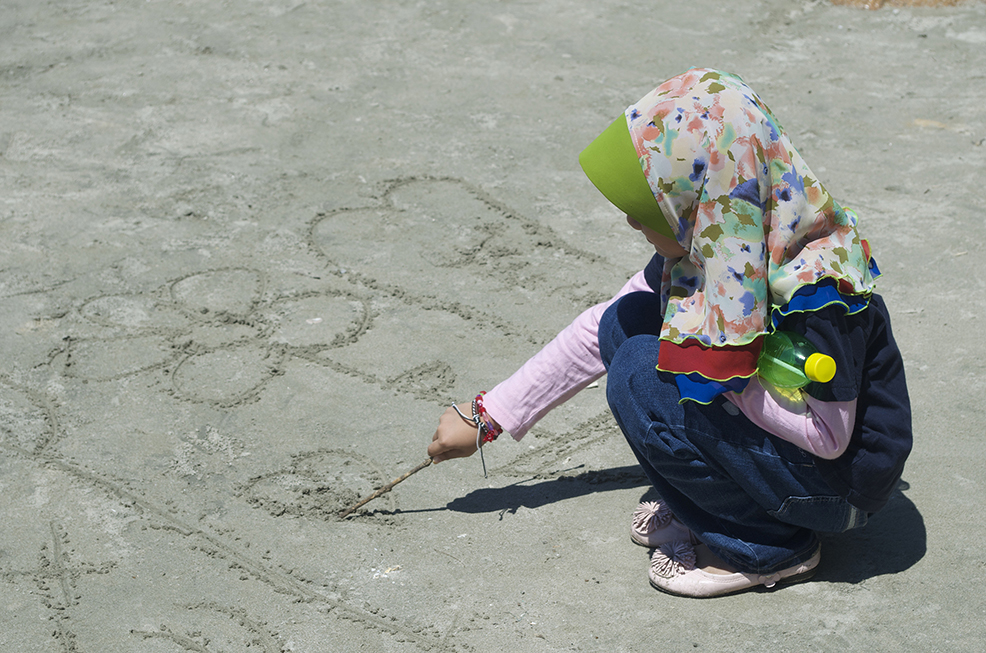
(Photo: Pxhere.com/Stock CC)
Sariya Cheruvallil-Contractor and Alison Halford
New research by Coventry University and CoramBAAF show that there are approximately 4,500 Muslim-heritage children in care in Britain. The majority of these children are fostered with the hope that one day they can go back to their families.
Around five per cent of these children are adopted. Our research provides unprecedented insights into these children’s lives. The research calls for collective action from policymakers, social workers, carers and for the Muslim community, aimed at prioritising each child’s welfare, security and happiness.
Who are the Muslim children in care?
Children of Muslim heritage come into public care due to abuse, neglect, family breakdown, a parent or child’s illness or disability and lack of family support, substance misuse and/or extreme poverty. These are British-born children, generally over the age of two. A small proportion of these children are ‘given up’ by their parents.
The vast majority are removed by social services on account of harm or profound risk of harm. The decision to remove a child is never easy, and the preference is always for it to live within its biological family, with grandparents or uncles and aunts. When this is not possible, some children will need a new family, either through adoption or fostering.
There are also several unaccompanied asylum-seeking children (UASC) who require stable, safe homes.
According to Government figures, there are 4,560 UASC in the British Care system, and although it is not possible to say exactly how many, given current socio-political situations a significant proportion of these children are of Muslim heritage. For example, data provided by a local authority indicate that 19 out of 25 UASCs or 76 per cent of UASCs are of Muslim heritage, they are mostly male and are older teenagers.
Removal of Ethnicity from Children and Families Act 2014
Children of Muslim heritage are likely to experience a significant delay in finding a fostering or adoptive placement, and some may never find a permanent home. Delays cause lasting harm for children. Policymakers’ response has been to emphasise trans-racial placements by removing ethnicity from Adoption Law and Guidance in England. Social workers are no longer required by law to match religion and ethnicity when finding families for children.
Yet our research demonstrates that social workers continue to look for ‘best’ possible matches. Social work practice insists this is in the best interest of the child and helps maintain their biological heritage.
But with a shortage of Muslim foster carers and adopters, social workers will have to place children with whoever is willing to take them, although this may be detrimental for this child as demonstrated in Hussain’s (not his real name) story.
Hussain was 11 when he came into care after his widowed Pakistani mother remarried and his stepfather abused him. He was found by social services in a malnourished state and was placed in foster care. In foster care, Hussain was rude and troublesome. Having been bought up in a traditional Pakistani home, he struggled with Western traditions like eating at a table, with non-halal food being in the home and once ran away because his foster carers had a pet dog.
After running away from multiple foster homes, he was placed with Iqbal (not his real name). Unlike Hussain’s previous foster carers, who although they tried their best, struggled to meet his cultural and religious needs, Iqbal is a British-Pakistani Muslim foster carer.
In Iqbal’s care, Hussain gradually settled down, he was respectful and even went to college. He stayed with Iqbal until he was 18 and continues to visit him. Hussain and Iqbal consider each other family. For some Muslim children, it may not be appropriate to place them in Muslim homes, especially if they have experienced abuse or harm from ‘Muslims.’
But for the majority of Muslim children in care, Islam is integral to their identity and gives them a sense of continuity which makes it imperative that they are placed in Muslim homes. Fatima (18) told us how she knew Allah “was there for her” when she and her brothers found themselves in care.
What can we do, as a community?
There is a national shortage of foster carers. Black and Minority Ethnic carers are even fewer. Recent trends suggest that there are sufficient numbers of Muslims applying to adopt. However, they do not take on the older children in care as their preference is for a baby, so these children, who need homes, continue to wait.
Another barrier to Muslim children in care finding a home is a long-standing misapprehension of religious or cultural prohibitions around adoption and fostering in Muslim communities.
However, recently over two hundred Muslim scholars came together to state that this is theologically incorrect as the Qur’an insists that orphan and vulnerable children are to be cared for by whoever can do so as an act of faith and charity.
Applying to adopt or foster is not easy. Muslim foster carers and adopters told us about the issues they experienced, including concerns around Islamophobia. It is important to note the process of vetting prospective adopters and foster carers is rigorous and intrusive but arguably it has to be so, as social workers need to find people who can be trusted with society’s most vulnerable children. Yet as Iqbal and so many other foster carers and adopters show us, it is possible.
The circumstances that bring children into to care will always be traumatic and they will need to be nurtured, loved and understood. If you can do this the reward is immense for you and the children.
The theological challenges around adoption and fostering as well as the guidance produced by the Muslim scholars will be addressed in the next issue of The Muslim News.
Dr Sariya Cheruvallil-Contractor
Assistant Prof, Research Group Lead – Faith & Peaceful relations
CTPSR, Coventry University
Alison Halford
Project Research Assistant & PhD Candidate
CTPSR, Coventry University